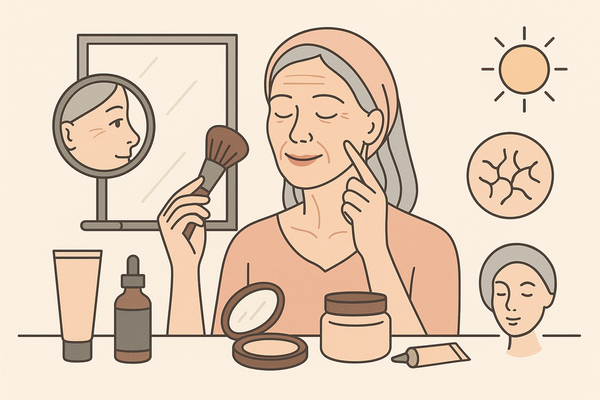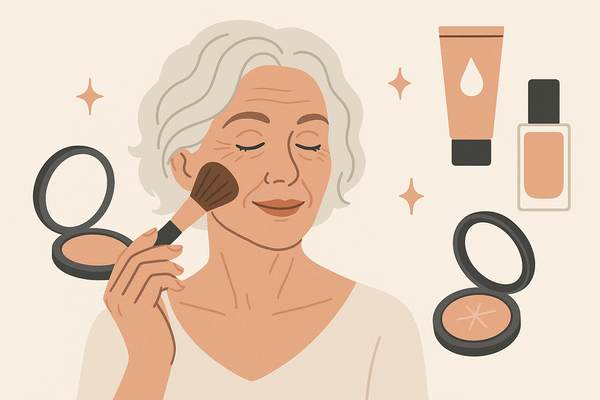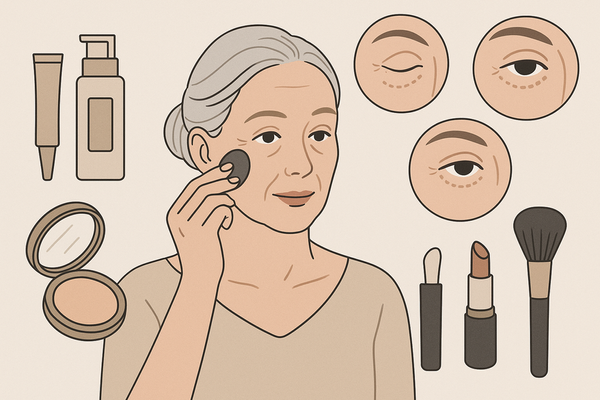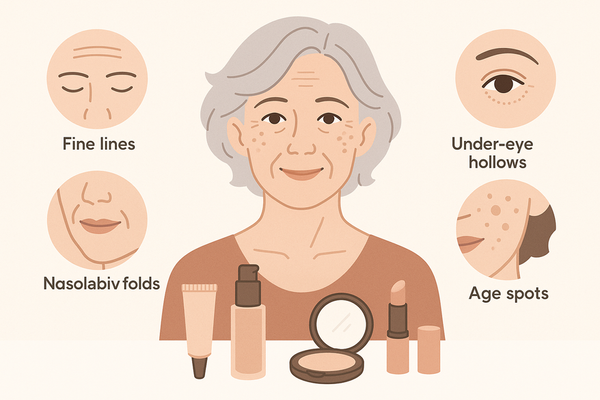Nutrition Impact on Makeup Longevity: How Diet Enhances Cosmetic Wear
Discover how nutrition impacts makeup longevity and how a diet rich in vitamins and minerals enhances cosmetic wear, keeping your look fresh all day.
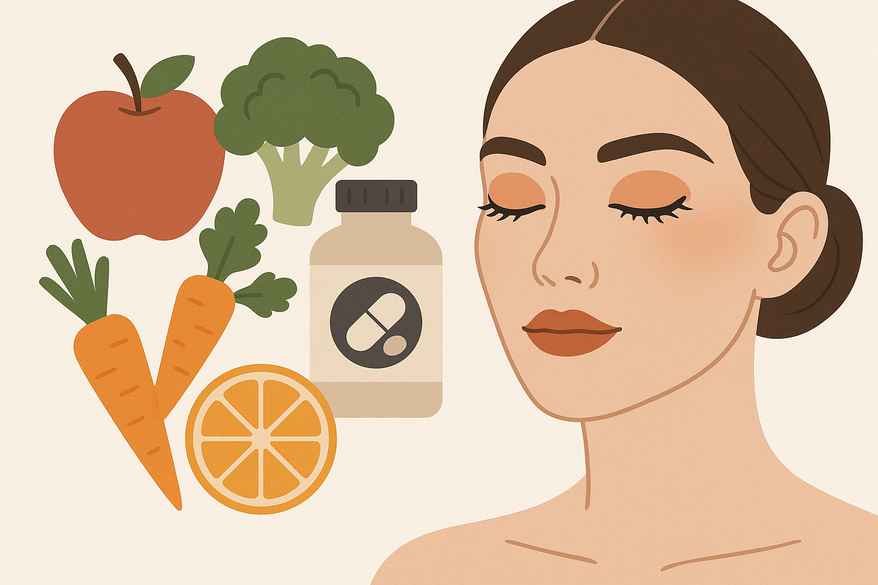
Estimated reading time: 4 minutes
Key Takeaways
- Internal nutrition and hydration form the foundation for long-lasting makeup.
- Key nutrients like vitamins A, C, E, zinc, selenium, and omega-3s support skin barrier integrity.
- Balanced sebum and optimal hydration ensure smooth, crease-free makeup application.
- A combined dietary and skincare regimen amplifies product performance and wear time.
Table of Contents
- Introduction
- Defining Key Concepts
- The Science of Nutrition and Skin
- How Skin Health Affects Makeup Longevity
- Key Nutrients & Foods for Long-Lasting Makeup
- Practical Dietary & Skincare Routine Recommendations
- Common Myths vs. Facts
- Conclusion
Introduction
The impact of nutrition on makeup durability is more profound than most beauty enthusiasts realize. Your skin’s health—governed by both dietary and skincare factors—directly influences how long cosmetics stay fresh. Below, we delve into the science linking internal hydration, barrier function, and makeup wear time, offering evidence-based tips to keep your look intact all day.
Section 1: Defining Key Concepts
Makeup Longevity
- Definition: The duration makeup stays intact, crease-free, and true to color.
- Influences: Skin texture, hydration level, sebum production, and barrier integrity.
- Definition: How vitamins, minerals, antioxidants, and essential fatty acids support skin structure, hydration, and repair.
- Building blocks: Nutrients maintain collagen, elastin, and cell renewal.
- Stratum corneum lipids: Ceramides, cholesterol, and fatty acids lock in moisture.
- Ceramides: Seal gaps between skin cells, preventing water loss and external irritants.
- Sebum production: Balances lubrication; excess oil leads to slide-off, deficiency causes flaking.
- Cell turnover: Even renewal ensures a smooth surface for foundation adherence.
Section 2: The Science of Nutrition and Skin
Summary of Key Research
• “Nutrition impact on makeup longevity refers to how dietary choices influence skin health and makeup wear time.” Source: PMC7146365
• “Vitamins, minerals, and antioxidants are fundamental to skin integrity and resilience.” Source: PMC3583891
Nutrient Functions and Daily Recommendations
- Vitamin A – Regulates keratinocyte differentiation (RDA: 700–900 µg/day).
- Vitamin C – Cofactor for collagen synthesis, neutralizes free radicals (RDA: 75–90 mg/day).
- Vitamin E – Protects membrane lipids from oxidative damage (RDA: 15 mg/day).
- Zinc & Selenium – Cofactors for antioxidant enzymes (Zinc: 8–11 mg/day; Selenium: 55 µg/day).
- Omega-3 Fatty Acids – Maintain sebum viscosity, ceramide synthesis (250–500 mg EPA/DHA daily).
- Water – Supports cell turgor and nutrient transport (2–3 L/day).
Section 3: How Skin Health Affects Makeup Longevity
Direct Effects on Makeup Wear
- Hydrated skin retains moisture and smoothness, creating an even base for foundation and concealer.
- Balanced sebum prevents product separation or slide-off.
- Dryness and flakiness: Lack of essential fatty acids leads to micro-flakes breaking up makeup film.
- Inflammation: Oxidative stress triggers redness and uneven texture, causing uneven pigment distribution.
Section 4: Key Nutrients & Foods for Long-Lasting Makeup
Vitamin-Rich Fruits & Vegetables
- Berries and kiwi: High in vitamin C.
- Bell peppers: Vitamin C and carotenoids.
- Carrots and sweet potatoes: Beta-carotene (provitamin A).
- Salmon and mackerel: Omega-3 sources.
- Walnuts and chia seeds: Plant-based EPA/DHA.
- Avocado: Monounsaturated fats and vitamin E.
- Pumpkin seeds: Zinc.
- Brazil nuts: Selenium.
- Dark chocolate (70%+ cacao): Flavonoids.
- Cucumbers and celery: Over 90% water.
- Watermelon: Water plus vitamins A and C.
- Vegetable soups and broths: Fluids and minerals.
Section 5: Practical Dietary & Skincare Routine Recommendations
Integrated pre-makeup skincare routines, as detailed in our guide at ultimate pre-makeup skincare routine, ensure your barrier and hydration are optimized before application.
Sample Morning Routine
- Breakfast – Berry-spinach smoothie with Greek yogurt for vitamin C, antioxidants, and protein.
- Hydration – Start with 500 ml water or herbal tea.
- Skincare – Gentle, pH-balanced cleanser; hyaluronic acid serum; broad-spectrum SPF 30.
- Makeup Prep – Primer: Lightweight, hydrating formula that fills micro-gaps; see best makeup primers.
- Finish – Seal with setting powder or spray to lock in your look—learn when to use each at setting powder vs. spray.
Sample Evening Routine
- Dinner – Grilled salmon, quinoa, and roasted broccoli for omega-3s, protein, zinc, and vitamins A and C.
- Skincare – Double cleanse; retinol serum; rich ceramide moisturizer.
- Hydration – Herbal tea or warm water with lemon before bed.
Weekly Habits
- Exfoliation: 1–2×/week with AHA/BHA.
- Mask: Weekly ceramide or peptide-rich hydrating mask.
- Sleep: 7–9 hours/night.
- Stress Management: Meditation, yoga, deep breathing.
Section 6: Common Myths vs. Facts
“Myth”: Only external primers and setting sprays determine makeup longevity.
Fact: Internal nutrition and hydration form the foundational canvas; without a healthy barrier, primers can only do so much. Source: PMC7146365
“Myth”: All fats clog pores and shorten makeup wear.
Fact: Omega-3 and monounsaturated fats strengthen barrier lipids, reduce inflammation, and support even application. Source: News Medical
“Myth”: Drinking water has no effect on makeup.
Fact: Proper hydration plumps the stratum corneum, smooths microtexture, and helps products adhere, extending wear time. Source: PMC3583891
Conclusion
A diet rich in vitamins, minerals, antioxidants, healthy fats, and adequate water synergizes with a targeted skincare routine to maximize makeup longevity. Nourished, well-hydrated skin provides the optimal canvas—foundation stays true to color, concealer remains crease-free, and powders don’t cake. Healthy, resilient skin is the most reliable beauty tool you own.
Call-to-Action
Share your own tips or questions about how nutrition affects your makeup’s staying power! Subscribe for more evidence-based guides on nutrition, skincare, and beauty.
FAQ
Q: How does diet influence makeup longevity?
A: Nutrients like vitamins A, C, and E support collagen and barrier lipids, while hydration prevents flaking—together they maintain a smooth base for long-lasting makeup.
Q: Which foods are best for a lasting makeup look?
A: Berries, bell peppers, fatty fish, avocados, nuts, and hydrating vegetables deliver key vitamins, healthy fats, minerals, and water to optimize skin health.
Q: Can drinking water alone improve makeup wear?
A: Proper hydration is essential but most effective when combined with essential fatty acids and skin-nourishing nutrients; it plumps cells and smooths microtexture.
Q: Should I adapt my skincare routine when focusing on nutrition?
A: Yes—use barrier-supporting ingredients like ceramides, hyaluronic acid, and antioxidants to complement dietary efforts and maximize makeup performance.

